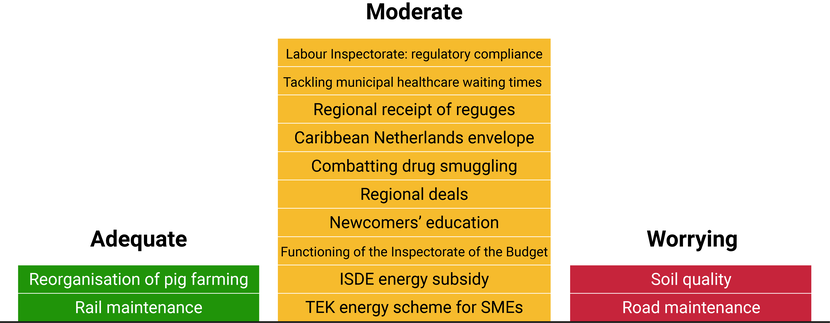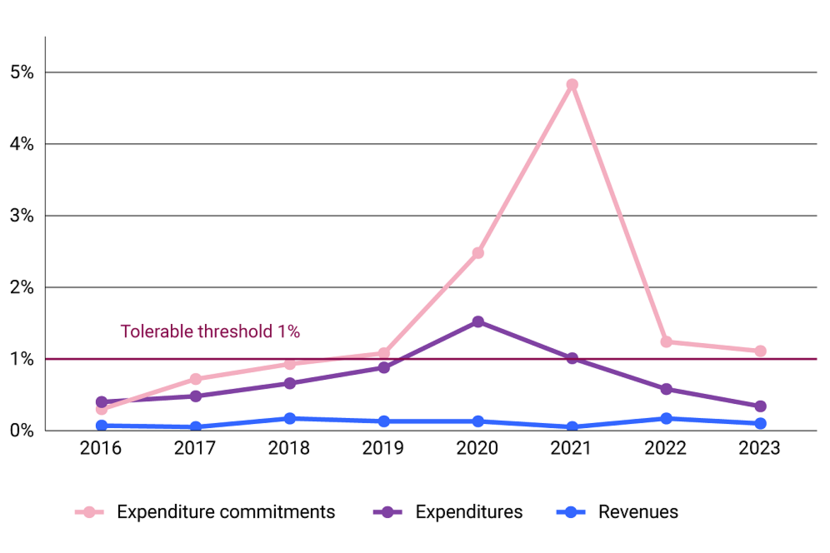State of central government accounts 2023
Think big, act realistically
Accountability Audit 2023: little insight into results of additional funding
The fourth Rutte government has had little success meeting all its ambitious goals. In practice, it was often unable to spend all the money budgeted for 2023. Ministers have little insight into what was achieved with the additional budgets to combat drug smuggling, support vulnerable regions, maintain roads and provide education for newcomers.
Active and targeted support was provided to alleviate high energy costs for citizens and businesses. Ministers reported well on the additional funding provided for paid parental leave, on crises such as the reception of Ukrainians and gas buffer stocks but parliament received far less information on many other policy areas that received additional funding. The public benefits of the government’s additional funding are largely uncertain. The government provided an additional €76 billion during its four-year term of office but at least €7.2 billion went unspent in 2023.

Implementation at a standstill
The Netherlands Court of Audit found that policy implementation had come to a standstill in several areas. Regulations are often complex and not enough civil servants or other implementers can be recruited to carry out the work. The Court found improvements in financial management at the Ministry of Health, Welfare and Sport, which had experienced a severe shortcoming during the COVID-19 pandemic in the previous 3 years. There had been an improvement in the regularity of expenditure. Central government expenditures and revenues remained below the tolerable error rate. The Court of Audit has issued a qualified statement of approval on the central government accounts because errors and uncertainties in government expenditure commitments were slightly higher than the tolerable threshold.
Improvement in regularity

The Dutch want results
The accountability audit comes at an exceptional moment this year. The Netherlands has had a caretaker government since 7 July 2023. At the time of writing, negotiations were still being held on the formation of a new coalition. They are taking place against a backdrop of national crises such as the childcare benefit scandal and gas production problems in Groningen. People have suffered. The crises have also exposed weaknesses in our democracy. They are due primarily to the government’s inability to solve problems. ‘Politicians are not living up to people’s expectations and getting results’ (SCP, 2024). Our society is changing and is crying out for practical solutions to the energy and climate transitions, sustainable agriculture, demographic change and other problems.
International tensions and wars are afflicting the world we live in. They demand a response form the Netherlands, the European Union and NATO. We need to think big and act realistically. There is no lack of policy, but very little action. Politicians have huge ambitions but the Dutch want results: seeing is believing.
Fewer shortcomings in operational management
The downward trend in the number of shortcomings in central government operational management continued in 2023. Plans to make the government more sustainable, however, have not been operationalised. We again recommend that the audit of central government finances be organised so as to avoid duplication of work. This would ultimately strengthen parliament’s oversight.
To learn the lessons of the past, Accountability Day should be held earlier in the year.